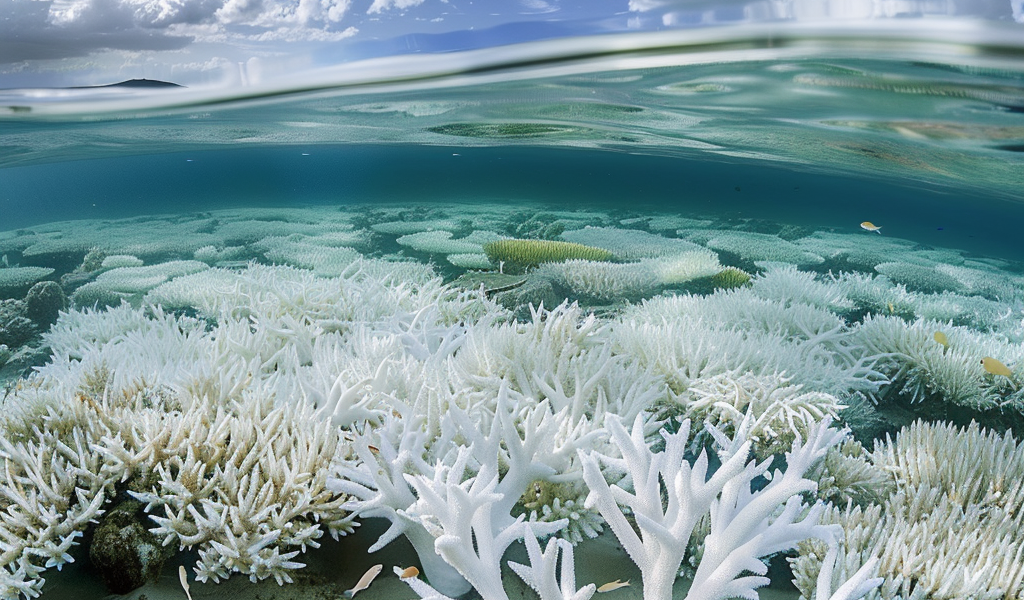Why Is No-One Talking About the Black Summer of Our Oceans?
Beneath the waves and out of sight, an unimaginable tragedy is unfolding. Late Thursday afternoon, just as the nation was switching off for the Easter break, the Government quietly released its latest update on the health of the Great Barrier Reef, confirming the devastating extent of yet another mass coral bleaching event. Over the long restful weekend, millions of Aussies down the east coast basked in bath-like sea temperatures, seemingly unaware of the devastation beneath the surface.
Recent months have seen our east coast waters suffer what can best be described as an underwater equivalent of our 2019-20 Black Summer bushfires. From the Torres Strait to the tip of Tasmania, almost nowhere has been spared – ravaged by marine heatwaves driven by the burning of coal, oil, and gas.
Down south in the waters off Tasmania’s east coast, the level of heat stress has been so high that the US National Oceanic and Atmospheric Administration (NOAA) ran out of colors for its maps. Under climate change, Tasmania’s giant kelp forests – once so dense they were marked on shipping maps – have declined by 95 per cent since the 1970s. A little further north, New South Wales oyster farmers were heavily impacted as temperatures in our estuaries resembled a hot tub. Offshore, New South Wales waters simmered at levels normally seen off tropical Queensland, where they would be warm enough to support the formation of a tropical cyclone. Further east, pristine Lord Howe Island – the Galapagos of Australia, home to the world’s southernmost coral reef – saw corals subjected to extreme heat stress and a major bleaching event.
Returning to the Great Barrier Reef, while it may be weeks or months before we know the full extent of this year’s damage, there are reasons to be very concerned indeed. Widespread bleaching has been observed along almost the entire length of the Reef. Most regions saw peak levels of accumulated heat stress that exceeded those experienced during 2016, when the Reef suffered its most widespread and deadly bleaching event. This includes coral reefs in the Torres Strait, on which Indigenous communities have depended and have cared for over countless generations. Regions that had been largely spared by previous events, such as Heron Island and other parts of the Reef’s southern section, have suffered devastating losses. Even long-lived ‘bommie’ corals, less sensitive than the fast-growing branching corals, have been bleached and are starting to die. These can be up to 200 years old – the equivalent of ancient trees in a rainforest.
It’s clear that urgent action is needed to address the escalating crisis facing our oceans. The impact of climate change on marine ecosystems is undeniable, and the time to act is now.





